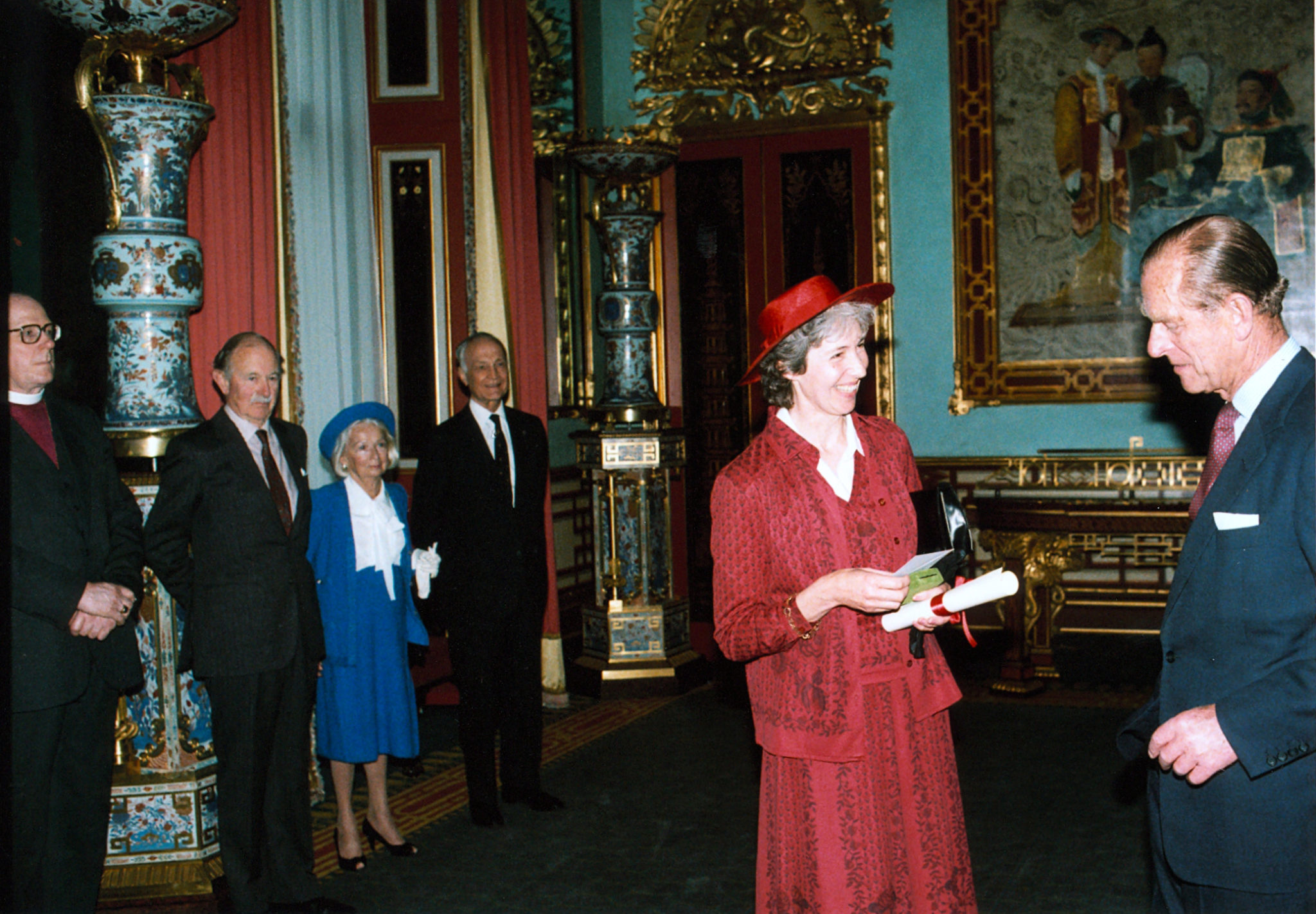February 10th marks the birthday of our 1985 Templeton Prize laureate, Sir Alister Hardy.
Sir Alister Hardy began his career as a marine biologist but went on to gain prominence for original empirical studies that used scientific methodology to investigate religious experience. In honor of his birthday, we reflect on a selection from his remarks delivered at the 1985 Templeton Prize award ceremony.
-

Belinda Farley accepting award for Alister Hardy 1985 Laureate of Templeton Prize from Prince Philip, Duke of Edinburgh at palace
“Many may ask how it is that a professor of zoology should in his retirement take up the study of religious experience. The purpose of this address is to answer that question, and perhaps surprise you even more when I tell you that it has not only been a lifetime’s interest but a conviction that it is actually a part of what I believe is a true study of life as a whole.
I should start by saying what I have often said before: that science itself, as we know it, cannot deal with the real essence of religion any more than it can touch our appreciation of art, our joy in the beauties of nature or the poetry of human love; we can, however, use the methods of science to make a systematic natural history study of human experience.
I came to know what I have always regarded as God when quite a boy; it was not the result of church services, of school chapel or of scripture lessons, but for quite other reasons, as I shall explain. First, however, let me say that I have no wish in any way to denigrate the glories of our beautiful old churches with their sense of what Rudolf Otto called the numinous — the feeling of the Holy which may be so powerful in the little side chapels devoted to private prayer. My objection to the modern church is its medieval theology, so different from that of the early Christians. I came to feel the experience of God through the beauty and joys of nature.
From very early days I was a keen naturalist, and when out on country walks by myself looking for beetles and butterflies I would sometimes feel a presence which seemed partly outside and curiously partly within myself. My God was never ‘an old gentleman’ out there, but nevertheless was like a person I could talk to and in a loving prayer could thank him for the glories of nature that he let me experience. If I may make an admission — and to do so is only honest — I should say that sometimes, when I was sure that no one was looking! I would go down on my knees to express this gratitude. At the same time I had become an ardent Darwinian.
At 18 I came up to Oxford in 1914, after the outbreak of war; I trained in the O.T.C. and left for my commission at Christmas. I was just as convinced of the reality of evolution as I was of man’s spiritual experience; on leaving for the war I made a solemn vow: that if I came through I would devote my life to trying to bring about a reconciliation of these two great truths. I did survive and I like to feel that the award of the Templeton Prize today rounds off a lifetime attempt to make this reconciliation.”
—Sir Alister Hardy, 1985. Read the full speech.
